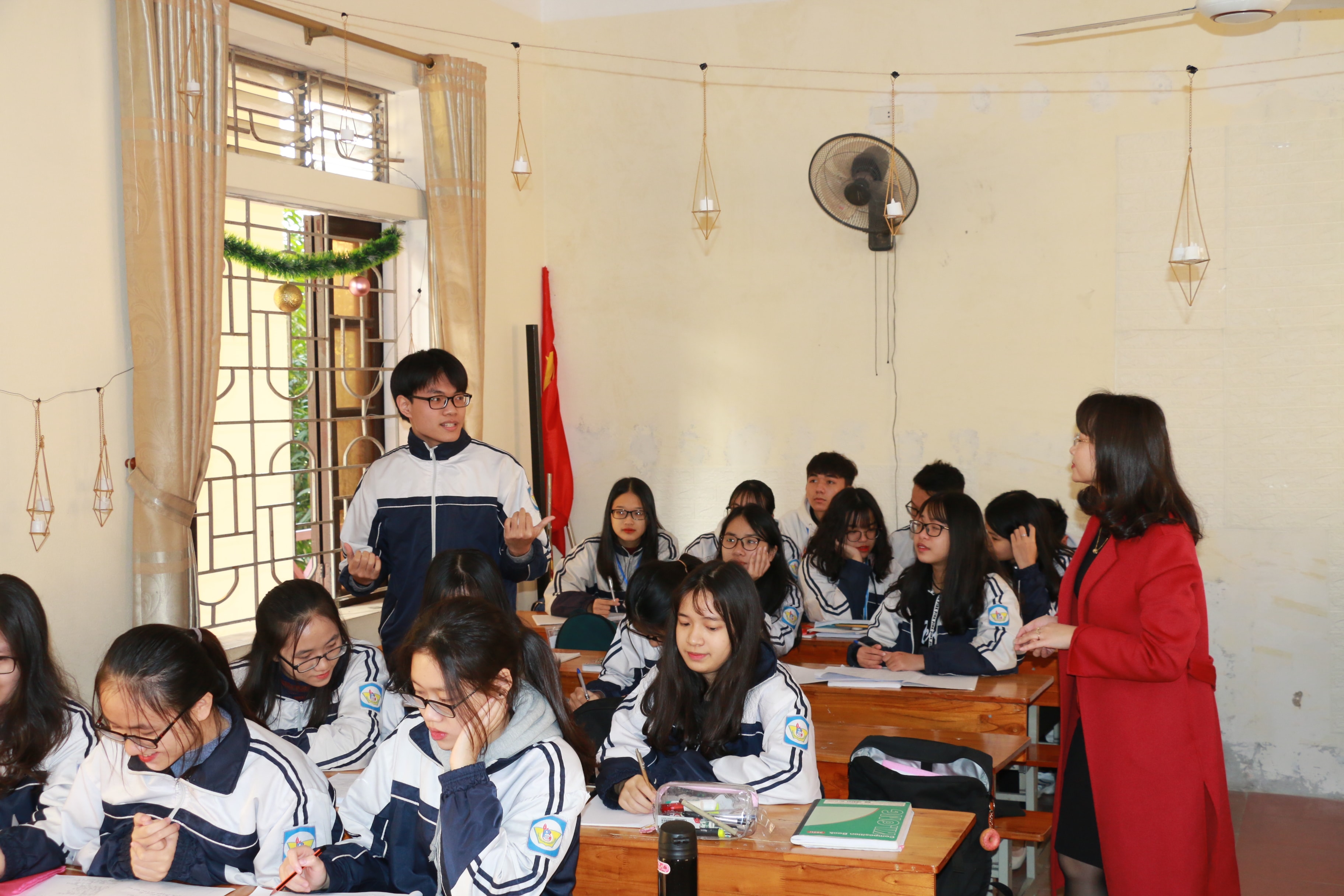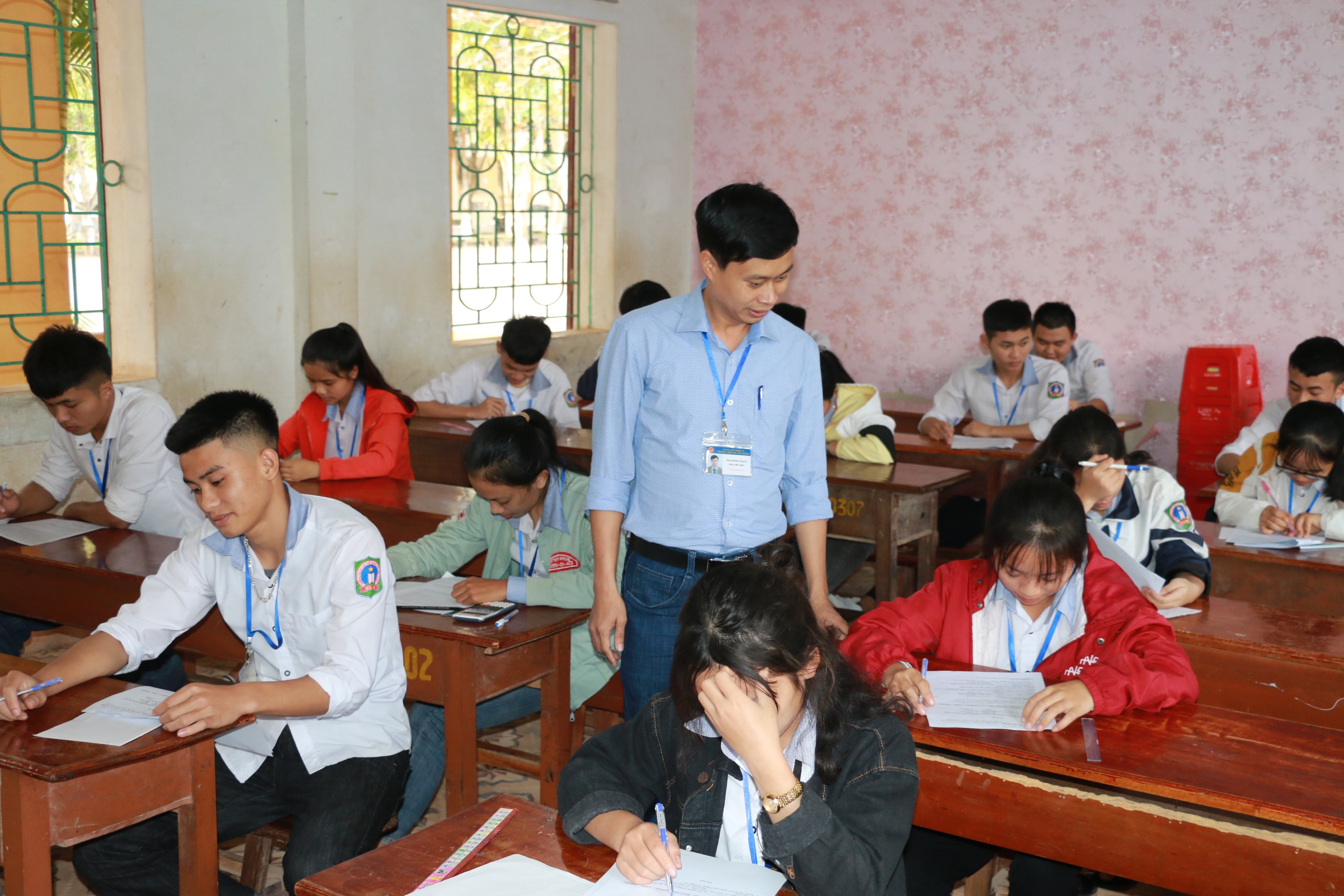Nghe An tightens appraisal to prevent copying of experience and initiatives, nearly 400 topics were eliminated
(Baonghean.vn) - This preliminary selection will contribute to improving the quality of scientific research projects and avoiding copying and imitation among teachers and schools.
The Department of Education and Training has just completed the appraisal round of "Initiative Experience" (IEX) topics registered by schools in 2020.
Specifically, in 2020, the Department of Education and Training received 1,435 initiative outlines from high schools and Continuing Education Centers in the province. Through appraisal and evaluation, the Department-level Initiative Outline Appraisal Council eliminated 387 outlines because they did not meet the set criteria such as duplicate topics and unreasonable outline structure. The number of outlines that continued to the second round for implementation were outlines with new topics, close to reality and summarized from the teaching process.
This is the first year Nghe An has conducted a “screening” of scientific research outlines with the aim of improving the quality and effectiveness of writing scientific research outlines at the grassroots level, avoiding the situation of writing perfunctorily or copying existing works on the Internet. Or, there are some scientific research outlines transferred from scientific research topics, master’s theses that do not meet the requirements or some scientific research outlines propose solutions that are not suitable for the reality of schools.
 |
| An English lesson for students at Phan Boi Chau High School for the Gifted. In 2019, this was the school with the largest number of recognized scientific research projects in the industry, including 6 type A scientific research projects and 13 type B scientific research projects. Photo: My Ha |
Previously, talking about changes in the implementation of writing scientific research papers this year, the Director of the Department of Education and Training also requested: Experience initiatives must be new ideas and initiatives drawn from experience and creativity of the author from reality.
Besides, the initiative does not have to be 100 pages long, nor does it need to be theoretical. In addition, the initiative must start from specific daily issues such as education and teaching to encourage teachers and must be disseminated to the entire industry. In case of violation, the author must be handled according to industry regulations.
Experience initiative is one of the criteria for evaluating and classifying civil servants and public employees according to Decree No. 56/2015/ND-CP of the Government. Accordingly, to be recognized for excellent performance, cadres and teachers must have at least 01 scientific work, project, topic or initiative that has been applied and brought about effectiveness in performing professional and occupational work recognized by competent authorities.
 |
| Teacher Phan Hoang Thach (Bac Yen Thanh High School) - a person with many highly appreciated scientific research projects. Photo: My Ha |
In Nghe An, in 2019, 482/724 SKKNs were classified by the Department of Education and Training, accounting for 66.6%: Of which, 58 SKKNs were classified as A, accounting for 8.0%; 424 SKKNs were classified as B, accounting for 58.6%. This number is nearly double that of 2018 (259 SKKNs were classified).
In 2020, the change in the method of accepting SKKN received the response of many teachers in the whole industry and in fact the number of registered topics has nearly doubled compared to 2019. This is a positive signal and is expected to bring many good results in implementing SKKN writing in units.
Regarding scientific research, on February 20, 2020, the Provincial People's Committee recognized 140 provincial-level scientific research initiatives in 2019. Of which, in the field of Education and Training Management, there were 36 recognized experience initiatives (SKKN); in the field of Mathematics - Information Technology, there were 15 SKKN; in the field of Physics - Chemistry, there were 8 SKKN; in the field of Biology, Vocational Education, Fine Arts, Physical Education, there were 22 SKKN; in the field of Literature and English, there were 18 SKKN; in the field of History and Geography, there were 18 SKKN; in the field of Preschool, there were 8 SKKN; in the field of Primary Education, there were 11 SKKN; in the field of Scientific Research Results at the ministerial and sectoral levels, there were 4 recognized SKKN.

.jpg)
